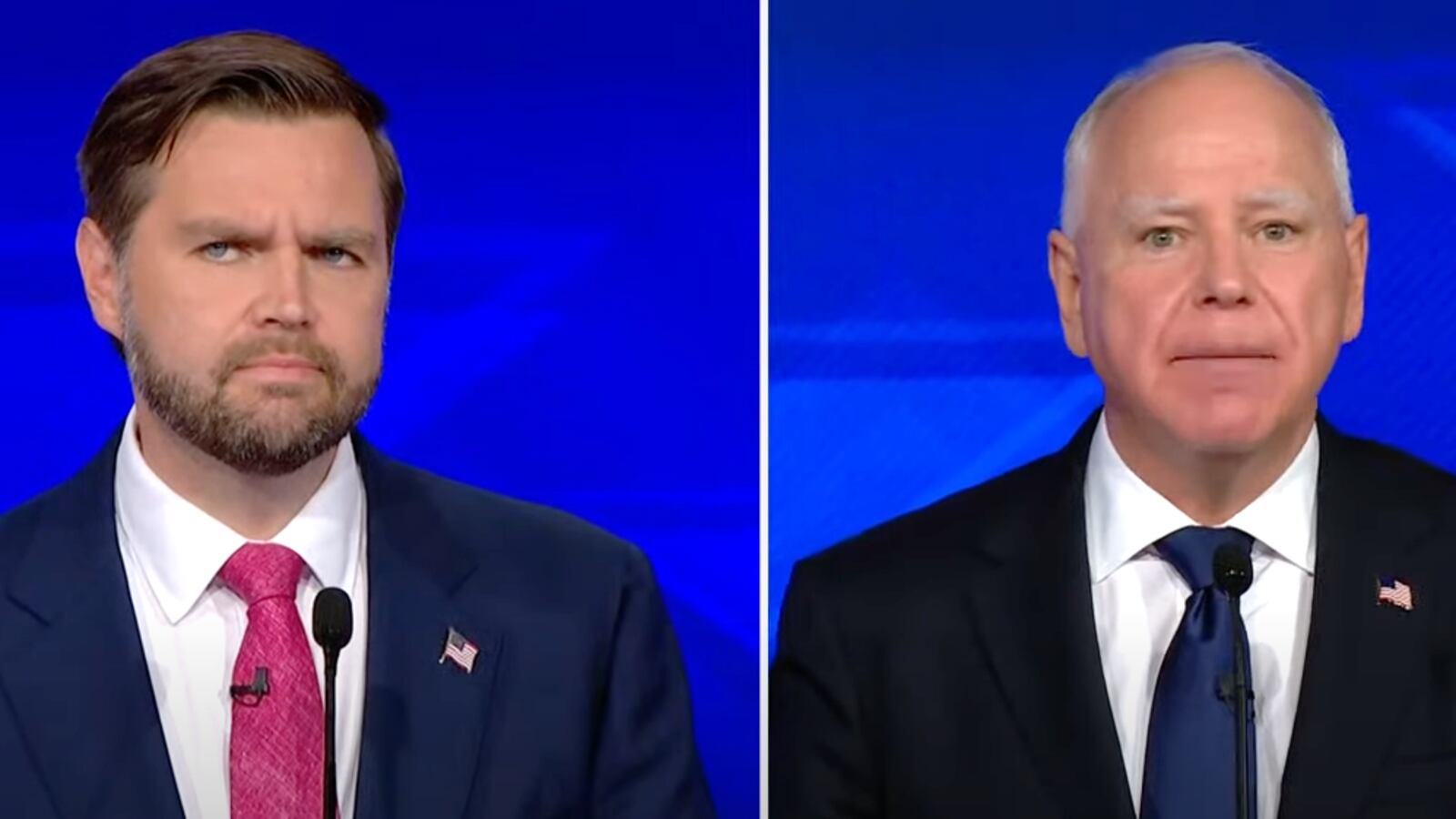The one viral moment in Tuesday’s vice presidential debate—when Tim Walz condemned JD Vance for his “damning non-answer” on whether Donald Trump lost the 2020 election—was destined to become a campaign attack ad. And so it did.
The Harris campaign launched its digital new ad, “JD Vance’s Damning Non-Answer,” across the seven battleground states on Wednesday aimed at attracting undecided voters. The ad seeks to capitalize on Vance’s failure to answer his opponent Walz’s question: Did Donald Trump lose the 2020 election?
“This is the first in a series of digital ads that will be launched highlighting key moments that resonated with undecided battleground voters from last night’s debate,” the Harris campaign said.
In a race in which Kamala Harris and Donald Trump have been virtually tied for weeks on end, elusive undecided voters could be game changers, though it’s unclear how many of them exist. New York Times polling says 18 percent of American voters haven’t chosen between Harris and Trump. But a Franklin & Marshall poll from August found that just three percent of voters were undecided.
Interspersed with footage of the deadly Jan. 6, 2021, Capitol riot, the ad warns: “If we elect Donald Trump, the past will be the future.”
The Harris campaign’s internal polling found that Vance’s dodging of the question was his worst-rated moment of the night. The ad uses a clip from Tuesday’s debate in which Walz looked directly at the camera and said: “America, I think you've got a really clear choice of who's going to honor democracy and who's going to honor Donald Trump.”
Snap polls conducted immediately after the face-off between Vance and Walz suggested voters thought the two candidates performed about evenly well. The vice presidential debate was remarkable for its civility with both Vance and Walz remaining calm, polite and even appearing to be caring.
Vance at one point told Walz he was “sorry” to hear that 17-year-old Gus Walz witnessed a shooting and said, “I hope he’s doing OK” before exclaiming, “Christ have mercy. It is awful.”
The event stood in stark contrast to the angry, surreal presidential debate last month when Trump advanced a conspiracy theory about Haitian migrants eating pet dogs and cats in Springfield, Ohio—false claims that wound up wreaking havoc on the small town. The debate between the vice presidential candidates was likely the last debate until Election Day.






